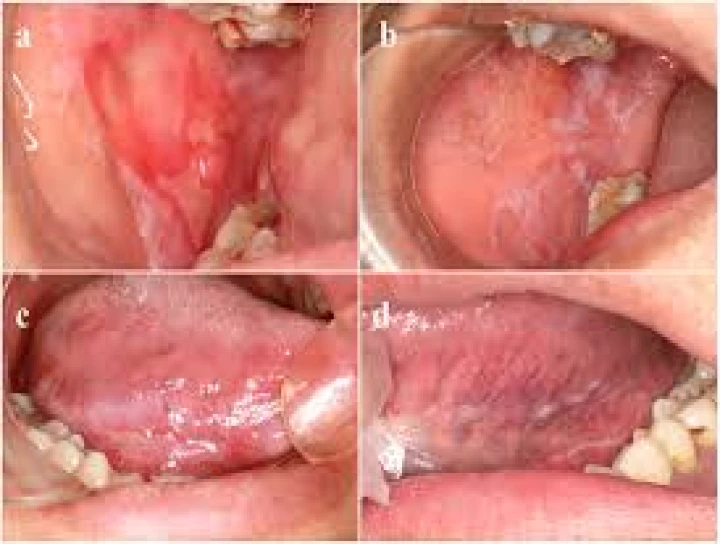
Assessment of Stress, Anxiety, and Depression in Oral Lichen Planus Patients
Oral lichen planus (OLP) is a chronic inflammatory condition affecting the oral mucosa, characterized by white striations, erythematous lesions, and painful erosions. Although its exact etiology is unknown, OLP is believed to be an immune-mediated disease influenced by genetic, environmental, and psychological factors. A growing body of evidence highlights a significant association between psychological stress, anxiety, and depression with OLP, underscoring the importance of assessing these factors in affected patients.
Psychological Stress and Oral Lichen Planus
Stress has long been implicated in the onset and exacerbation of OLP. Psychological stress triggers the hypothalamic-pituitary-adrenal (HPA) axis, leading to the release of cortisol and other stress hormones. These hormones suppress the immune system, causing dysregulation of T-cell responses, a key mechanism in OLP pathogenesis. Moreover, stress may increase oxidative stress and inflammatory mediators, aggravating mucosal damage.
Studies have consistently shown higher levels of perceived stress in OLP patients compared to healthy controls. Many patients report stress preceding the onset of OLP symptoms or exacerbation of existing lesions, suggesting a cyclical relationship where stress and disease perpetuate one another.
Anxiety and Oral Lichen Planus
Anxiety disorders, characterized by excessive worry and fear, are prevalent among OLP patients. The chronic pain and discomfort associated with OLP lesions can heighten anxiety, particularly in patients with erosive or atrophic forms. Anxiety may also stem from concerns about the disease’s chronic nature, its potential for malignant transformation, and its impact on quality of life, including difficulties in eating, speaking, or social interactions.
Research using standardized scales, such as the Generalized Anxiety Disorder-7 (GAD-7), has shown elevated anxiety scores in OLP patients. This heightened anxiety may further exacerbate OLP symptoms through stress-induced immunological and inflammatory pathways.
Depression in Oral Lichen Planus Patients
Depression is another common comorbidity in OLP patients, often resulting from chronic pain, social isolation, and reduced quality of life. Depressive symptoms, including feelings of hopelessness, fatigue, and lack of interest in daily activities, are frequently reported in individuals with OLP. The bidirectional relationship between depression and systemic inflammation is well-documented, with depression potentially amplifying the inflammatory milieu in OLP.
Instruments like the Patient Health Questionnaire-9 (PHQ-9) and Beck Depression Inventory (BDI) are commonly used to assess depression levels in OLP patients. Studies have found significantly higher depression scores in OLP patients compared to non-affected individuals, particularly in those with severe or extensive lesions.
Assessment and Management
- Psychological Screening: Incorporating validated tools like the Perceived Stress Scale (PSS), GAD-7, and PHQ-9 into routine OLP evaluations can help identify stress, anxiety, and depression.
- Multidisciplinary Approach: Collaboration between dental professionals, psychologists, and psychiatrists is essential for comprehensive care.
- Stress Management Techniques: Counseling, mindfulness, yoga, and cognitive behavioral therapy (CBT) can help alleviate psychological stress in OLP patients.
- Pharmacological Interventions: For severe cases, anxiolytics, antidepressants, or stress-modulating medications may be considered in conjunction with immunosuppressive therapy for OLP.
Conclusion
Stress, anxiety, and depression play a pivotal role in the onset and progression of oral lichen planus. These psychological factors not only exacerbate the disease but also impair the overall well-being of patients. Comprehensive assessment and management of these conditions, alongside standard OLP treatments, can significantly enhance patient outcomes and quality of life. Future research should further explore the psychosomatic connections in OLP to develop targeted therapeutic strategies.


No Any Replies to “Assessment of Stress, Anxiety, and Depression in Oral Lichen Planus Patients”
Leave a Reply